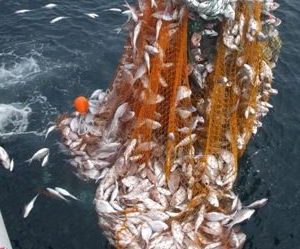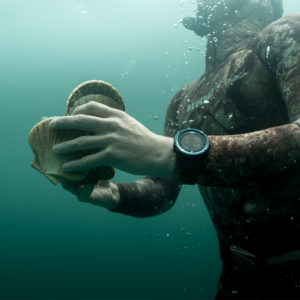Welcome to the FryUp – a regular look back at the week of fishing in the news.
Scallops
It takes something dramatic to happen to get the Ministry for Primary Industries to agree with LegaSea but sadly that’s the point we’ve reached with the Scallop 7 (Marlborough-Tasman area) fishery.
Minister Nathan Guy has closed the fishery to all activity to give the scallops time to recover – if indeed they can.
Scallop fisheries highlight how the use of destructive fishing practices, such as dragging industrial dredges across the fragile seabed, is damaging the ability of species to replenish their populations.
LegaSea has been calling for closer management of fisheries for some time. As technology marches on and new ways of catching fish are introduced we’re seeing an untenable situation develop where catch numbers are maintained right up to the point where suddenly (for “no apparent reason”) the fish stocks are no longer viable. In part this is hidden from view because the weight of fish being taken remains constant but the industry is taking smaller fish than ever before. By destroying the seabed or by taking juvenile fish the industry is complicit in the depletion of fish stocks and the environment’s productive capacity.
By looking at fishing through a different lens – per fish caught rather than per tonne of fish – LegaSea’s hope is we have a better understanding of what value to place on each fish. We know from our own economic research that fish caught by recreational fishers is worth far more to the economy than fish hauled in by the tonne and dumped overseas for $2 or $3 per kilo.
LegaSea – Marlborough-Tasman scallop closures
NZMRF – Value of Recreational Fishing
Forest & Bird and Sea lions
Forest and Bird have been up in arms this week about the number of sea lion deaths due to industrial fishing activity.
The New Zealand sea lion is on the endangered list and has been since 1997. But instead of returning to the “non-threatened” list by 2017, the number of pups has continued to decline and in 2010 its status was upgraded to “nationally critical”.
You’d think that would mean we as a country would do more to protect the sea lions but instead industrial fishers have continued to be the main threat to the future of the sea lion population.
MPI allows up to 68 sea lions to be accidentally killed in the Auckland Islands fishery each year but because of the lack of accountable observers on boats there’s no way of knowing whether or not the boats kill more than that number.
Sea lion exclusion devices (SLEDs) have been in use since 2001 but astoundingly there is no research to show whether or not they work, whether the sea lions returned to the sea are dead or alive, injured or well or pretty much anything else about the process.
As we’ve seen with the Operation Achilles and Hippocamp draft reports, there are plenty of industrial fishers out there with every reason not to report by catch or fish dumping and that extends to marine wildlife as well.
Newshub – Dispute over what’s killing NZ’s sea lions
FISNZ – NZ’s sea lions’ decline raises controversy
Poachers
Poachers come in all shapes and sizes but the end result is the same – less trust of fishers, more fish taken from our waters, a reduction in what’s available for the rest of us who do abide by the law.
Two cases this week at each end of the spectrum.
MPI says fishers are taking to social media (Facebook in particular) to advertise their catch and to sell fish caught on the black market.
MPI has recently prosecuted two fishers for selling crayfish and kina through Facebook and says this is the tip of the iceberg.
At the other end of the spectrum, the Navy has stopped and boarded two Chinese flagged fishing vessels suspected of illegal fishing activity near New Zealand’s economic zone.
One of the vessels was caught with an illegal haul of Southern Blue Fin tuna – worth up to $100,000 a fish.
RNZ – Illegal fish being flogged on social media
Stuff – Chinese-flagged fishing vessels caught out near exclusive NZ waters
Stuff – Nancy Collis keeps a cool head while protecting New Zealand waters from illegal fishing





